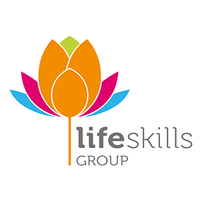There is a significant amount of research that suggests family-school partnerships have positive impacts on academic achievement (Alton-Lee, 2003; Epstein, 2001; Pomerantz & Moorman, 2010). Research reviewing different forms of family-school partnerships demonstrate the biggest impact on student learning comes from parent-teacher intervention programs with an effect size of 1.81 (Robinson, Hohepa, & Lloyd, 2009).
I don’t think this research will come as much of a surprise for any educator; strong family-school partnerships that focus on a united approach to driving student outcomes have a positive impact on student learning. There are, however, a few things that are worth looking at more closely here.
There is a great statistic that is not supported by real research but makes a fun point by claiming:
Parents who purchase parenting books have children that are 400% more likely to go to university.
I like this pseudo evidence because of the underlying truth to it. There is no causal pathway between parenting books and progeny attending university. Purchasing a parenting book is however an indicator of a family environment that is conducive to learning achievement. Similarly, the positive impact we see on student achievement from family-school partnerships is a measure of the families who, in most cases, are already predisposed to supporting academic achievement.
So, what does this mean for us in schools?
When you survey parents and ask what they want for their children at school the list looks something like this:
- Happy
- Liked/ Friends
- Safe
These are all characteristics of student wellbeing. It doesn’t take a huge logic leap to feel that parents are predisposed to supporting student wellbeing. So, knowing what we know about the impact of family-school partnerships on student achievement, what could we achieve with parent-teacher intervention programs that focus on wellbeing?
What happens when we create a safe space for students to record how they are feeling and why they are feeling it?
- We promote emotional wellbeing, encourage self-reflection, and foster a deeper understanding of one’s feelings and self-awareness.
- We cultivate an environment that values the acknowledgment and expression of emotions, fostering a deeper sense of belonging.
- We have real-time information to plan a united approach to wellbeing support for students.
- We can utilise data to tailor support that is proactive and focused on building emotional literacy, strategies for emotional regulation and normalising feelings.
- We can provide support that is consistent from home and school, built on a common language and shared belief between family and educators that managing emotions, feeling safe and nurturing positive friendships are outcomes worth pursuing.
This is not a utopian fantasy; this is something that can be achieved in schools if we believe it is worth doing.
It is no secret that anxiety and mental health is on the increase. It is also true that children are asked to navigate a more complex social environment than the generations that preceded them. A world that constantly holds a mirror up and asks our young people to judge their worth. It is beyond question that the ability to manage emotions is going to become increasingly important in life after school. So, how can we work in partnership with parents and carers to ensure our young people have the skills they need to thrive in the world ahead of them?
[ Rydr Tracy is the Head of Education at Life Skills Group and former Director Strategic Priorities at CESE. He is a specialist in evidence-informed practice in educational innovation, with a career focus on strategic change that improves student outcomes. He draws on a rare blend of successful experience in schools, system leadership roles and industry practice – experience that has given him deep understanding of the complexities of the education sector from the classroom to the boardroom and a demonstrated capacity to generate practical recommendations that are grounded in context and evidence. ]
.png?width=500&height=374&name=Logo_transparent%20(2).png)





